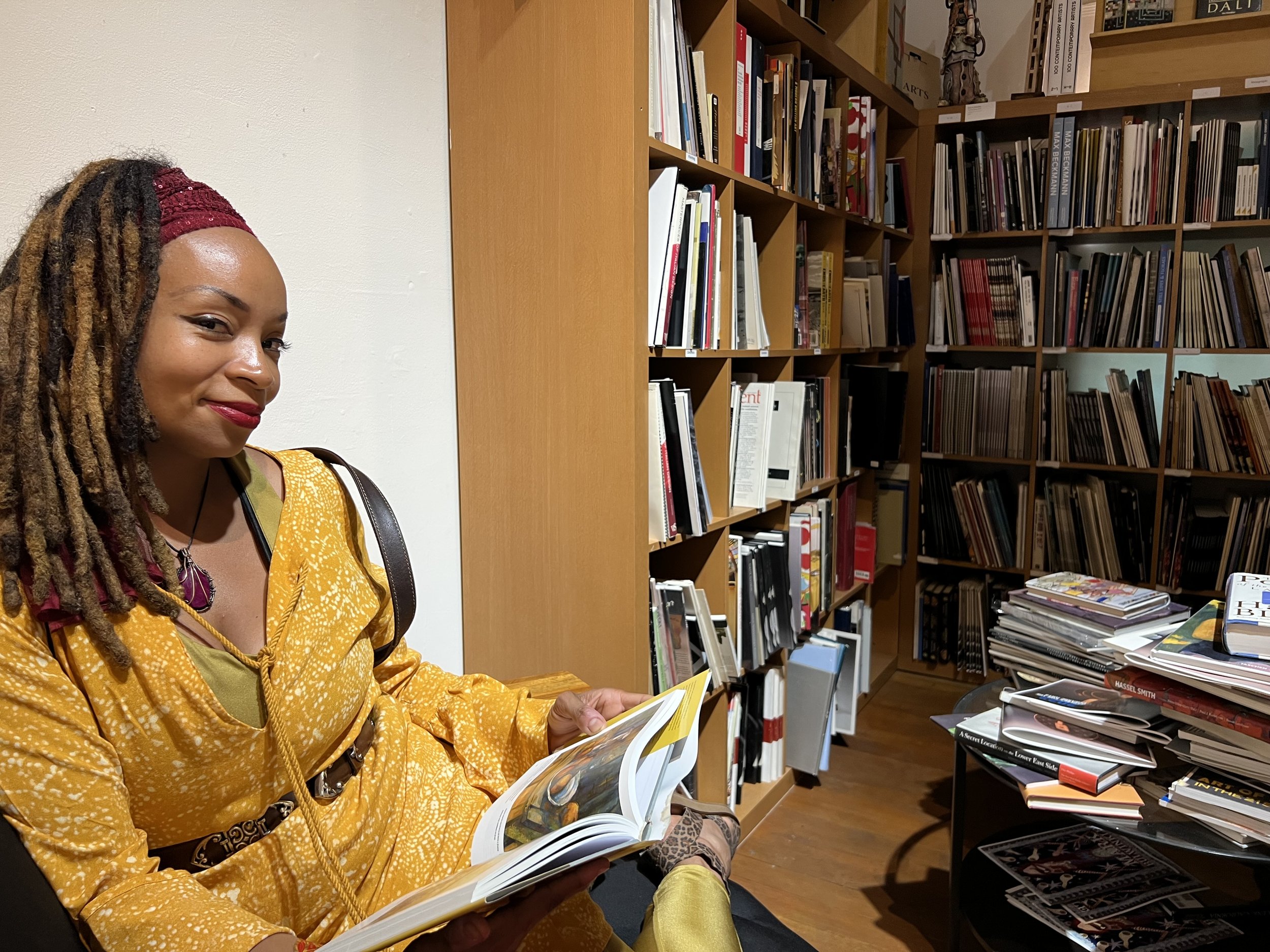Care Work and the Divine Feminine
“It’s not about self-care—it’s about collective care. Collective care means shifting our organizations to be ones where people feel fine if they get sick, cry, have needs, start late because the bus broke down, move slower, ones where there’s food at meetings, people work from home—and these aren’t things we apologize for.”
― Leah Lakshmi Piepzna-Samarasinha
The Necessity of Care Work
Care work encompasses the work of caring for others, including unpaid care for family members and friends, as well as paid care for others. It includes the care our society provides to children, the elderly, the sick, and the disabled, as well as doing domestic work such as cleaning and cooking. Many times this necessary labor is invisibilized within the system of grind culture which leaves women, femmes, caregivers, and the diasbled population undervalued and underpaid. Making care work visible is critical to creating a more equitable world. When we take the time and and energy to uplift care work in the workplace and beyond, we create an intersectional approach to equity in the workplace.
Intersectionality makes the case for creating structures and programs that cultivate the thriving of multiple identities instead of choosing a “one-size fits all” approach. Intersectionality honors multiple identities at once by acknowledging that if we are multifaceted, then our diversity programs should be as well. When I enter professional spaces, I enter with multiple identities. These identities are full of societal privileges and disadvantages based upon hierarchical systems of oppression.
When I consider my intersecting identities, I reflect on being an able-bodied, CIS gendered, light-skinned, married, Black mother. Being able to name my identities, and understand how they intersect in the workplace helps me know when to take space in order to reclaim my voice in systems of oppression, and when it’s time to make space in order to amplify the voices of less privileged identities.
The Intersection of Care Work and Ableism
After my pregnancy, I came toe-to-toe with my ableism, which is a set of practices and beliefs that assign inferior value (worth) to people who have developmental, emotional, physical or psychiatric disabilities. I realized I was ableist when I noticed that I only cared about increased accommodations at work and access to more periods of rest, when it impacted me on a personal level. I was guilty of the same thing I accused white people of, who were unaware of their white privilege. I was unaware of my ability privilege and learning about it for the first time and it made me feel awkward.
Although pregnancy is not classified as a disability, as a pregnant woman, working full time in the workplace, my ability to produce was impaired. In this sense, some pregnant and disabled people share the commonality of having their ability to produce impaired which makes them vulnerable in the workplace. Now obviously pregnancy is a temporary condition, whereas many disabled folks live with life-long conditions that impair their ability. As a matter of fact, the CDC reported that in the U.S. alone, “six in ten adults have a chronic disease, and four in ten adults have two or more.” (Barbato, 2021) However, having the experience of being treated differently based on my ability to produce, opened up an awareness around ableism that I had the privilege of not having to consider. Grind culture will impact people from marginalized groups on a deeper level because many times, these groups have less access to wealth and resources.
The Divine Feminine and Systems Change
Targeted universalism, a concept created by John Powell that asserts that if you design policies for the most marginalized groups in society, greater thriving will be experienced by the collective. One example of targeted universalism can be found in the creation of wheelchair ramps. Although wheelchair ramps are intended for people in wheelchairs, other parts of the population also benefit from wheelchair ramps including, people with strollers, bikes, carts, and walkers. Increasing access for a vulnerable population led to increasing access to other groups as well.
Targeted Universalism is a framework that puts the cultivation of caring communities into practice, and grounds us in the idea of what liberatory communities can look like in their most embodied sense. Policies like this are needed to create professional structures that support our humanity as well as our inherent right to thrive. A divine feminine approach to leadership is needed. According to The Good Trade, the divine feminine is a spiritual concept that uplifts a feminine counterpart to the patriarchal and masculinestructures that have long dominated structures and organizations. Creating communities of care requires returning back to the Divine Feminine essence that is present in each one of us. The Divine Feminine isn’t confined to gender. It is an energy that every human being can tap into to grow from a place of embodied wisdom and compassion.
Harnessing the essence of the Divine Feminine to create caring communities includes:
Centering human needs in the policies we create
Healing our relationship with grind culture and honoring creation over production
Creating opportunities for rest and well-being at a systemic level
Investing resources in systems that help our most vulnerable populations reclaim their sovereignty and their right to thrive.
When we intentionally tap into divine feminine wisdom to create caring organizations, policies, and communities, we loosen the hold that grind culture has on our consciousness by creating nourishing communities of care and understanding. When we create communities of care and relinquish expectations of perfectionism of ourselves and others, we begin to heal the shadow of grind culture and create a greater sense of thriving in our work and personal lives. Tapping into the feminine essence that exists in us all, leads to more humane professional spaces and presents greater opportunities to thrive at work and beyond.
Heather Archer is an author, workplace wellness coach, sound healer, and hypnotherapy practitioner who helps others heal their relationship with grind culture and toxic productivity through coaching, workshops, and retreats. Learn more at www.thrivingwithheather.com.

